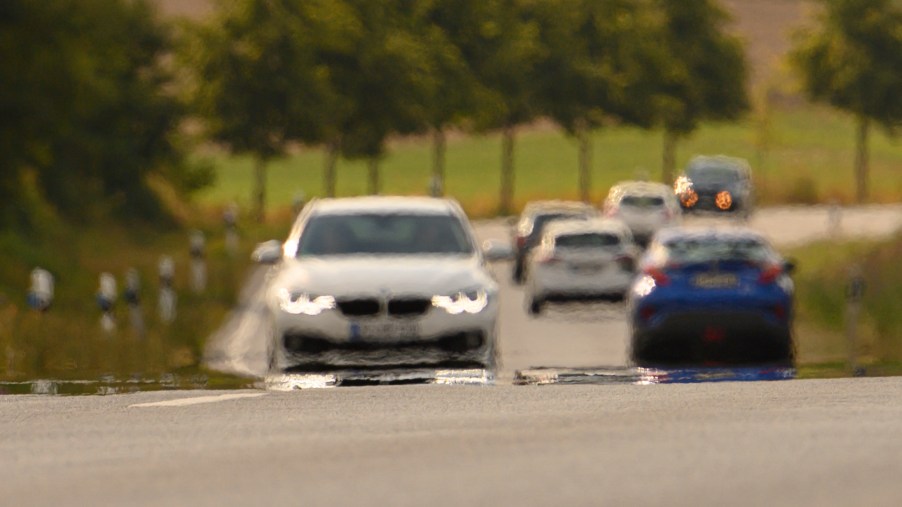
Is It Bad for Your Car to Drive in the Heat?
There are plenty of things to worry about on summer road trips, and car safety is one of them. Running out of fuel is one, but wearing your vehicle down in blistering-hot weather can lead to expensive repairs down the road. And driving in the heat can be dangerous to the car’s occupants, too.
The heat can affect your car in several ways. Here’s a look at them and how you can prevent damage.
How does hot weather damage your car?
We’re often taught that winter weather can be hard on our vehicles, but that’s not the only harmful season. Summertime brings hot temperatures, dry weather in some areas, and humidity in others. So what parts of a vehicle are affected by extreme heat?
First, consider the rubber tires. Though they’re designed to withstand a certain amount of heat from friction, they’re not immune to prolonged exposure to hot temperatures, especially if you’re doing a lot of extra traveling.
Then there are wet cell batteries. Not all vehicles have them, but some do. These need to be monitored and filled with distilled water when they get low, Sun Auto Service explains. Heat can make the water evaporate in the cells faster. However, maintenance-free batteries don’t need checking.
Last, antifreeze levels become even more crucial in the summer. Antifreeze prevents your car’s engine from overheating. When antifreeze levels get too low, the vehicle’s motor won’t cool properly, risking serious damage or failure.
What can you do to prevent heat damage during your summer road trip?
To prevent unnecessary wear and tear on your tires, check the air pressure more often. Check your owner’s manual for the proper air pressure measurement, or ask your mechanic for help. Use an air pressure gauge a few times a month to ensure your tires are properly inflated, and add air when needed.
Determine if your battery is a maintenance-free one or a wet cell. If you have a wet cell battery, you’ll need to pop the covers off the battery and check the water level in each exposed cell. Top them off with distilled water if levels are low. If you don’t know how to tell what kind of battery you have or don’t want to deal with it, ask your mechanic to check it at least once a month.
Always check the antifreeze in the radiator to ensure it hasn’t evaporated or gotten too low. However, don’t check it when the car is hot. Instead, wait until it has cooled so that you can safely remove the radiator cap. Then add more antifreeze, if necessary, to ensure your engine lasts a long time. Remember that an engine isn’t cheap to repair or replace, so it’s best to take the time to ensure it’s protected.
What should you do if your car breaks down in the heat?
No one wants to get stranded on the side of the road. But it happens, so you must be prepared. The first thing you should do is to prevent any issues by making sure tires are properly inflated, batteries are topped off with water (if needed), and the radiator is never low on antifreeze.
According to Leavitt Group, you should also carry a summer emergency kit. Of course, water is a must-have for any kit, but you should also increase the amount of water if you’re stranded in the hot sun. Stay hydrated until you can get to a safe place.
Other important items to pack in the kit are sunscreen, a first-aid kit, a flashlight, a blanket for shade, flares, hazard signs, tire sealant cans, and jumper cables. Also, be sure to have some nonperishable snacks to keep you nourished while you wait.
Before heading out on a summer road trip, no matter how far it may be, get your car serviced first so you’re good to go when you leave. If you head out and find out miles later that your engine was low on oil or your tires were low on air, you may regret it. Hangle what you can before you go, and make sure you have a summer kit packed in case of a breakdown.
Related: Can Your Car Handle a Road Trip?


